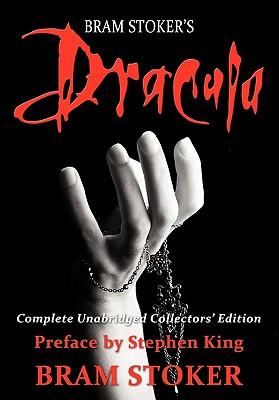Dracula has been attributed to many literary genres including vampire literature, horror fiction, the gothic novel and invasion literature.
Structurally it is an epistolary novel, that is, told as a series of letters, diary entries, ships' logs, etc. Literary critics have examined many themes in the novel, such as the role of women in Victorian culture, conventional and conservative sexuality, immigration, colonialism, postcolonialism and folklore.
Dracula has inspired countless movies, books, and plays. But few, if any, have been fully faithful to this, Bram Stoker's original, best-selling novel of mystery and horror, love and death, sin and redemption. Dracula chronicles the vampire's journey from Transylvania to the nighttime streets of London. There, he searches for the blood of strong men and beautiful women while his enemies plot to rid the world of his frightful power.
REVIEWS:
"Dracula is a virtual textbook on Victorian repression of the erotic and fear of female sexuality."
- Playboy
"Before all the vampires of modern cinema and horror novels, there was Bram Stoker's Dracula, the original head honcho of horror. All others pale in comparison."
- Stephen King
"In this volume, lovingly restored to its original unabridged and untouched glory, the power and majesty of Bram Stoker's masterpiece emerges from the coffin dripping with new life."
- Fangoria Magazine
